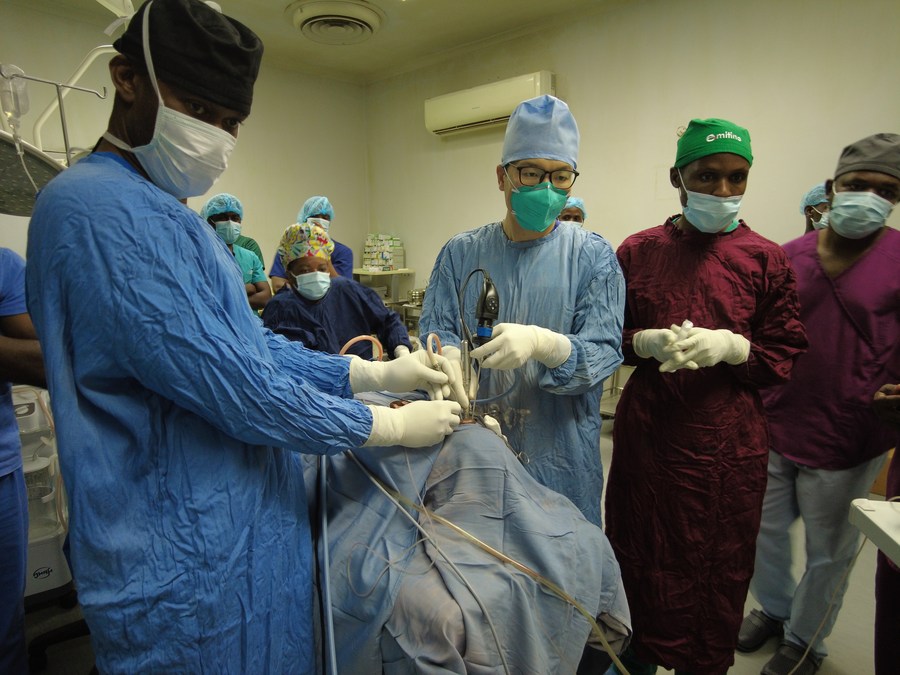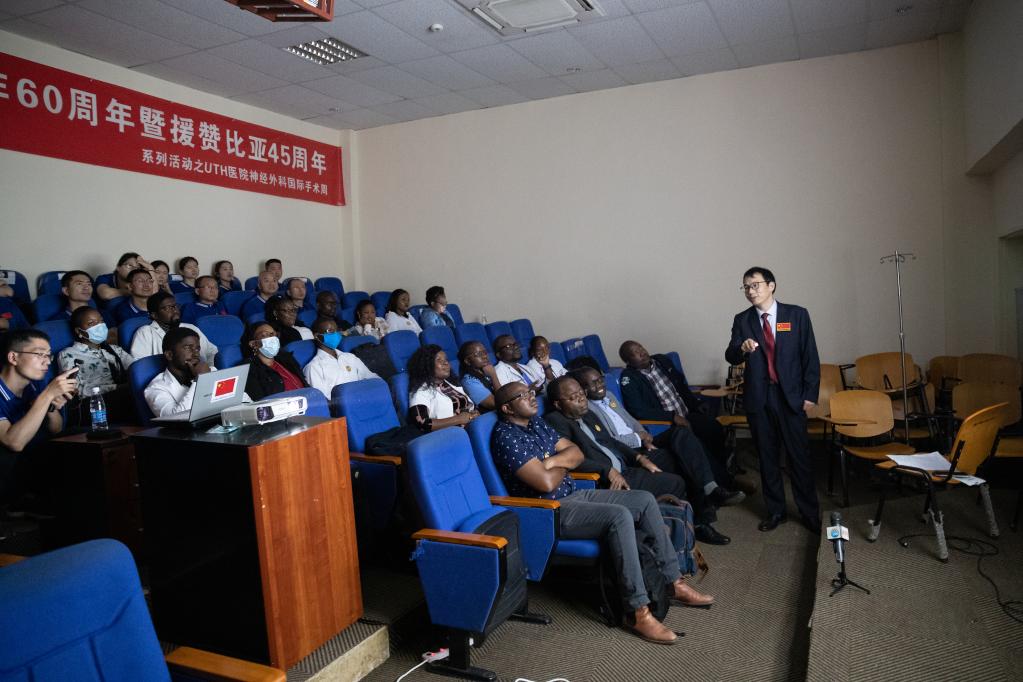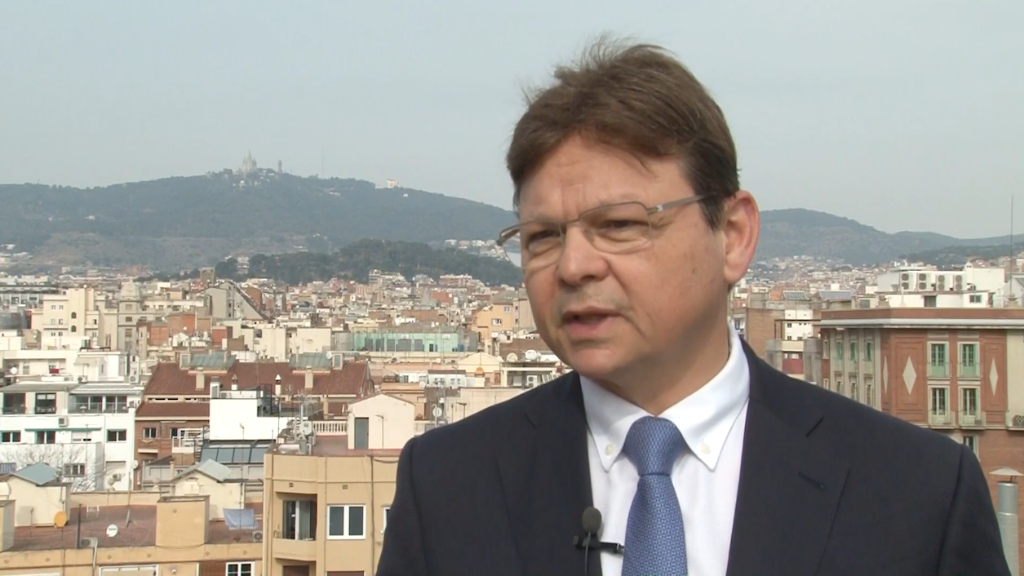
Chen Zhenbo (3rd, R), a member of the Chinese medical team, conducts a surgery with local doctors at the University Teaching Hospital (UTH) in Lusaka, Zambia, Feb. 22, 2023. (Xinhua)
Zambian doctors have successfully conducted four surgeries to remove tumors from the brain following a training conducted by the 23rd batch of the Chinese medical team, a senior neurosurgeon at the country's biggest hospital said on Friday.
LUSAKA, Feb. 25 (Xinhua) -- Zambian doctors have successfully conducted four surgeries to remove tumors from the brain following a training conducted by the 23rd batch of the Chinese medical team, a senior neurosurgeon at the country's biggest hospital said on Friday.
Kachinga Sichizya, chief of surgery at the University Teaching Hospital (UTH), said the local young doctors have successfully conducted four transnasal surgeries to remove pituitary tumors through endoscope on patients under the supervision of Chen Zhenbo, a member of the Chinese medical team.
"This has been a significant week in the history of neurosurgery in Zambia because we have been able to do four operations through the pituitary pathway. It is a very complex operation," Sichizya said on the sidelines of an international pituitary surgery conference organized to exchange views between Chinese doctors and their Zambian counterparts.
The conference was also attended by some trainee doctors from the Democratic Republic of the Congo, Zimbabwe and Botswana.

Chen Zhenbo (1st, R), a member of the Chinese medical team, shares his experience at the University Teaching Hospital (UTH) in Lusaka, Zambia, Feb. 24, 2023. (Xinhua/Peng Lijun)
Sichizya told Xinhua that the operations were organized following months of training in which Chen taught the local doctors to conduct endoscopic pituitary tumors through the nose.
He said the doctors under the supervision of Chen have been preparing for the operations in the last two months, adding that the success of the operations was an indication that the local doctors will now be able to do the operations even when the Chinese doctors leave next month.
He said this will save the country a lot of money as in the past such operations were being done in India. "And now, no one will be sent abroad for treatment anymore. We will treat our own people because now our young people are able to do it."
He added that the government has, in the past five years, trained six neurosurgeons, bringing the number of neurosurgeons working in the public service to 10.
Alex Makupe, director of Clinical Care at the Ministry of Health, commended China for sending medical teams that have helped strengthen the country's health systems.
He said at the conference that the building of capacity in personnel has resulted in the country starting to conduct pituitary surgeries.
Yan Hongxian, leader of the Chinese medical team, said it was the desire of medical teams to impart advanced skills to their local counterparts.
He said for the past 45 years, Chinese medical teams have worked in different hospitals across the country and interacted well with their local counterparts.
He said the holding of the international pituitary surgery conference was significant for the healthcare of the Zambian people, and the medical team also learned some experiences from their local colleagues.
He commended the good relations between China and Zambia, adding that the conference would help all participants by enlarging their vision and improving their professional skills. ■












